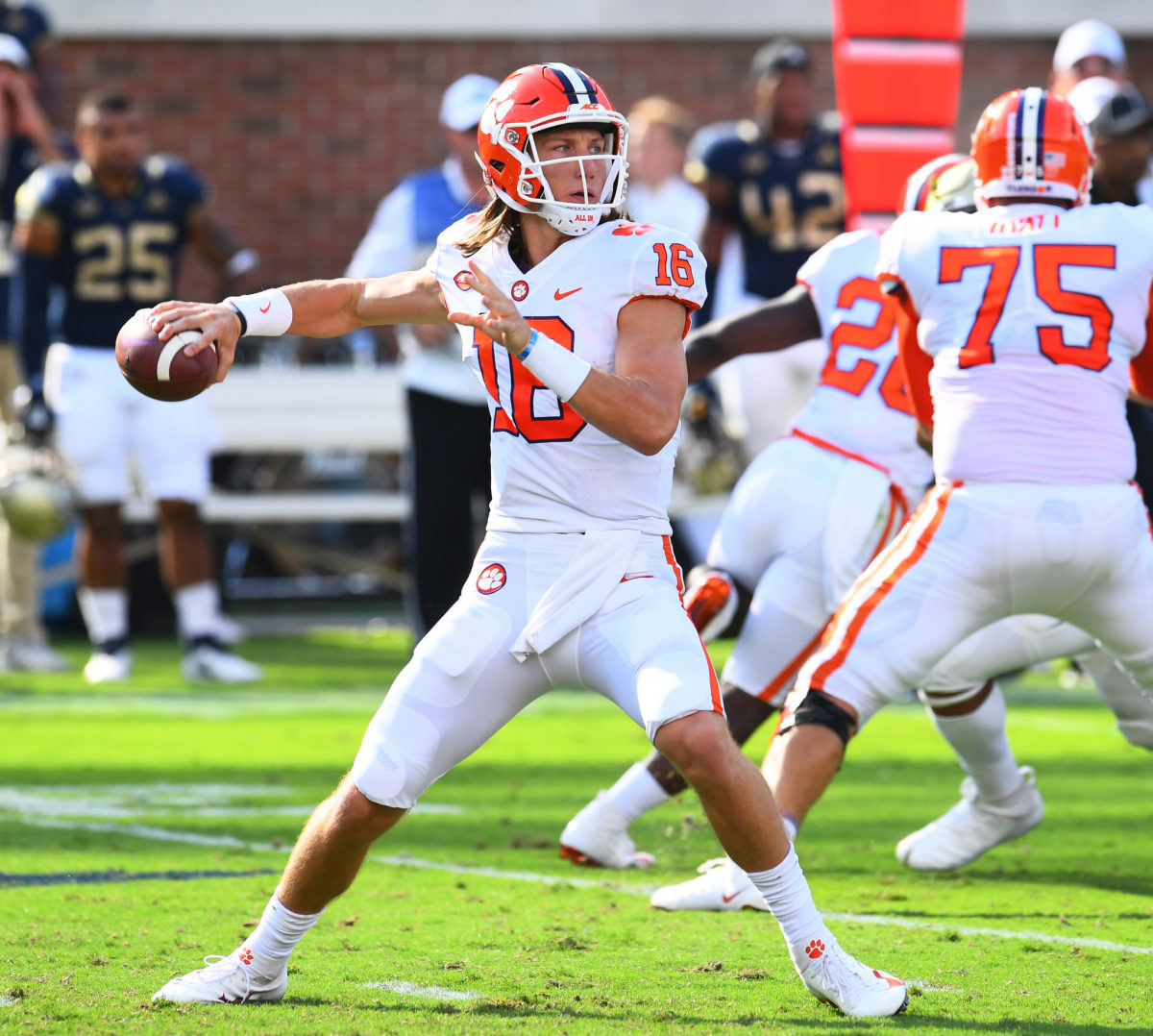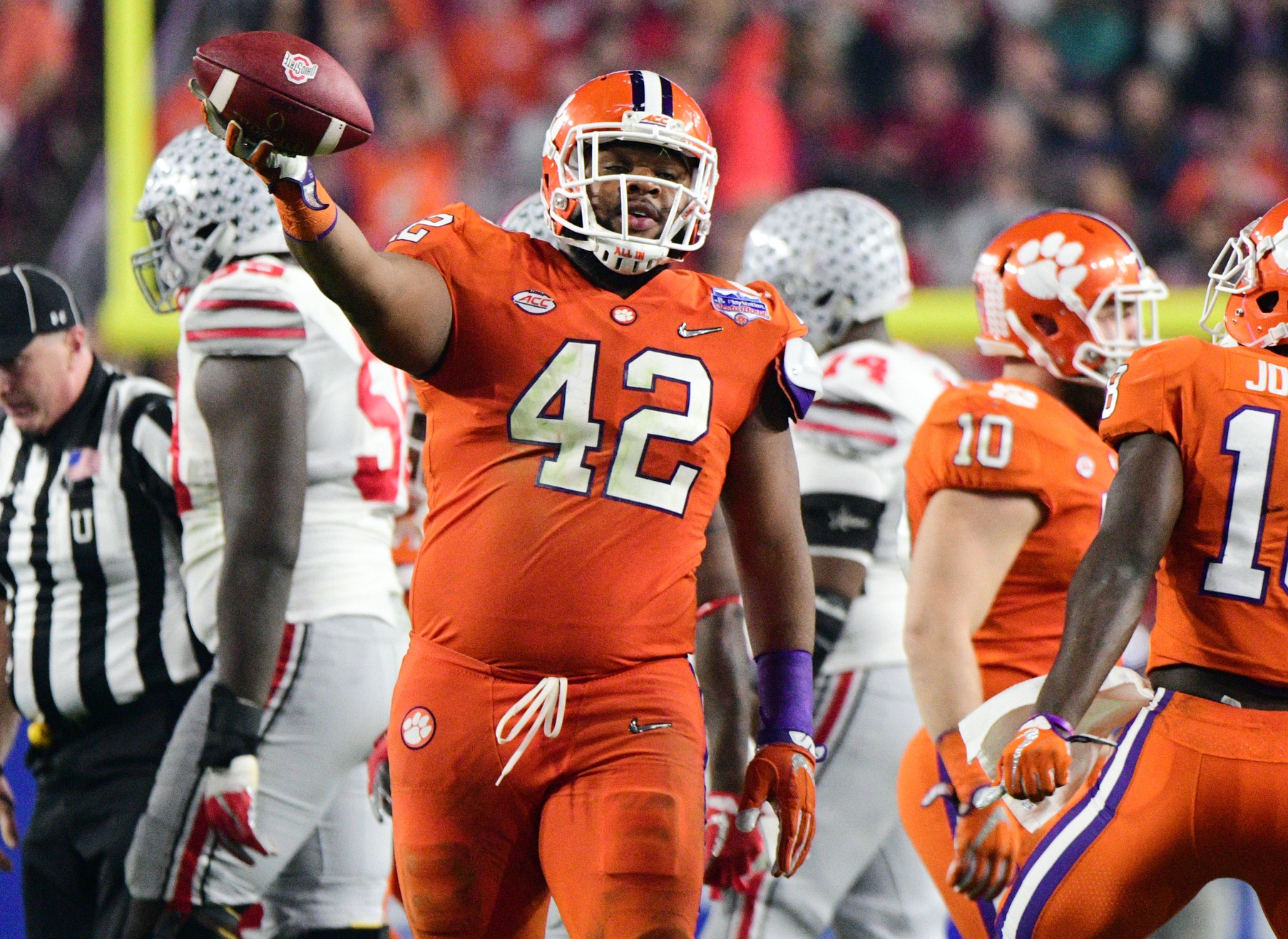Player Misconduct and Ejection: Clemson Player Ejected

Clemson player ejected – During the game, Clemson player [Player’s name] was ejected from the field for unsportsmanlike conduct. The incident occurred in the third quarter when [Player’s name] was involved in a physical altercation with an opposing player. The officials deemed the conduct to be excessive and unsportsmanlike, resulting in the player’s ejection.
The Clemson player’s ejection sparked a heated debate, but it was the insightful analysis of sports psychologist Marilyn Nault that truly resonated. Nault’s expertise in understanding the mental aspects of the game shed light on the player’s behavior, providing valuable insights that extended beyond the field and into the realm of human psychology.
Her perspectives served as a poignant reminder that the Clemson player’s actions were not merely isolated incidents but rather reflections of deeper underlying factors.
Rules and Guidelines Violated
The rules and guidelines that were violated by [Player’s name] include the following:
- Rule 9-1-3 of the NCAA Football Rulebook, which prohibits unsportsmanlike conduct, including “any act that is contrary to the spirit of sportsmanship.”
- The Clemson University Athletic Department’s Code of Conduct, which requires all student-athletes to “conduct themselves in a manner that reflects the values of the University and the Athletic Department.”
Potential Consequences
The potential consequences of the ejection for [Player’s name] include:
- A suspension from future games
- A fine
- A loss of playing time
- Damage to his reputation
The potential consequences for the Clemson football team include:
- A loss of a key player
- A loss of momentum
- A loss of the game
Impact on the Game

The ejection of a key player can have a significant impact on the momentum and outcome of a game. The player’s absence can disrupt the team’s rhythm and strategy, forcing them to adjust on the fly.
In the case of Clemson, the ejection of their star quarterback had a profound impact on the game. The team struggled to move the ball effectively without their leader, and their offense sputtered. The defense was also affected, as they were unable to generate the same level of pressure on the opposing quarterback.
Momentum Shift
- The ejection of a key player can shift the momentum of a game in favor of the opposing team.
- The team that loses a player may lose confidence and start to play more conservatively.
- The opposing team may gain confidence and start to take more risks.
Team Performance
- The absence of a key player can have a significant impact on the team’s performance.
- The team may be forced to change their strategy or play style.
- The team may struggle to replace the production of the ejected player.
Alternate Outcome
It is impossible to say for sure how the game would have unfolded if the player had not been ejected. However, it is likely that the game would have been much closer, and Clemson may have had a better chance of winning.
Reactions and Analysis

The ejection of Clemson player sparked a range of reactions from fans, coaches, and players. Fans were outraged, expressing their anger and frustration on social media and in online forums. Coaches and players from both teams commented on the incident, with some defending the player’s actions while others condemned them.
The media coverage of the incident was extensive, with major news outlets reporting on the story and providing analysis from experts. Some commentators argued that the ejection was justified, while others felt it was too harsh. The incident also sparked a broader discussion about sportsmanship in college football and the need for players to be held accountable for their actions.
Fan Reactions
Fans of Clemson were overwhelmingly critical of the ejection, with many calling it “unfair” and “unjust.” They argued that the player was simply trying to make a play and that the referee had overreacted. Some fans even went so far as to threaten to boycott future Clemson games in protest of the ejection.
Fans of the opposing team were generally more supportive of the ejection, arguing that the player had crossed a line and deserved to be punished. They pointed to the fact that the player had been penalized multiple times for unsportsmanlike conduct in the past.
Media Coverage
The media coverage of the incident was extensive, with major news outlets reporting on the story and providing analysis from experts. Some commentators argued that the ejection was justified, while others felt it was too harsh. The incident also sparked a broader discussion about sportsmanship in college football and the need for players to be held accountable for their actions.
- The New York Times: “Clemson Player Ejected for Unsportsmanlike Conduct”
- ESPN: “Clemson Player Ejection Sparks Debate About Sportsmanship”
- CBS Sports: “Clemson Player Ejected After Targeting Opponent”
Broader Implications, Clemson player ejected
The ejection of the Clemson player has broader implications for college football and sportsmanship. It raises questions about the role of referees in enforcing the rules and the need for players to be held accountable for their actions. The incident also highlights the importance of sportsmanship in college football and the need for players to respect their opponents.
The Clemson player’s ejection sparked a heated debate on sportsmanship, but the incident also brought to mind the legacy of Marilyn Nault , a pioneer in the field of sports psychology. Nault’s work on the mental aspects of sports performance has had a profound impact on the way athletes approach their game.
Her research on the importance of emotional regulation and self-confidence has helped countless players overcome adversity and achieve their full potential. In the wake of the Clemson player’s ejection, it is worth remembering the lessons that Nault taught us about the power of the mind in sports.
The Clemson player’s ejection was a moment of high drama, but it also brought to mind the recent jerry west death. Both events were untimely and unexpected, leaving fans with a sense of loss. But while the player’s ejection was a setback for his team, West’s death was a loss for the entire basketball community.
In the thick of the game, a Clemson player’s ejection sent shockwaves through the stadium. Yet, amidst the chaos, there emerged a glimmer of hope in the form of Joe Mazzulla. His steady leadership and unwavering determination breathed new life into the team, reminding them that even in the face of adversity, victory could still be theirs.
The ejected player’s absence may have left a void, but Mazzulla’s presence filled it with a fire that burned brighter than ever.
The Clemson player’s ejection sparked controversy, bringing to mind the infamous Jerry West finals record. Despite his legendary career, West faced repeated disappointment in the championship series. The Clemson player’s expulsion echoed West’s frustration, reminding us that even the greatest can be haunted by the specter of defeat.
